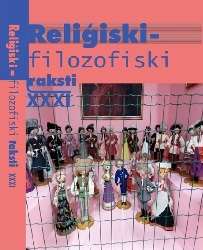Explanations and Attitudes Towards Superstition, Magical Thinking, and Occultism in the Press of Soviet Latvia
Explanations and Attitudes Towards Superstition, Magical Thinking, and Occultism in the Press of Soviet Latvia
Author(s): Diana PopovaSubject(s): Media studies, Political history, Government/Political systems, Politics and communication, Crowd Psychology: Mass phenomena and political interactions, Post-War period (1950 - 1989)
Published by: Latvijas Universitātes Filozofijas un socioloģijas institūts
Keywords: Soviet Latvian press; superstition; magical thinking; occultism; explanations; attitudes;
Summary/Abstract: This article offers a thematic analysis of Latvian-writing press published in the Latvian Soviet Socialist Republic in the period 1945–1989 with the aim to identify explanations and attitudes towards ‘superstition’, ‘magical thinking’ and ‘occultism’. The most occurring examples of superstition were categorized in seven themes: magical thinking as the prime origin of religion; superstition as a primitive way of explaining natural phenomena; mediumship and spirit summoning; quackery or health fraud; divination or fortune telling; ‘everyday superstitions’; rituals and superstitions of individual professional groups. The thematic analysis suggests that although media in Soviet Latvia were the messengers of the communist ideology and advocates of a scientific and materialistic worldview, over time, some expressions of magical thinking were treated less strictly than others, e.g., in sport. In general, any belief in supernatural powers was considered as reactionary and obscurantist and attributed as characteristic to Western capitalist societies.
Journal: Religiski-filozofiski raksti
- Issue Year: XXXI/2021
- Issue No: 3
- Page Range: 345-371
- Page Count: 27
- Language: English

